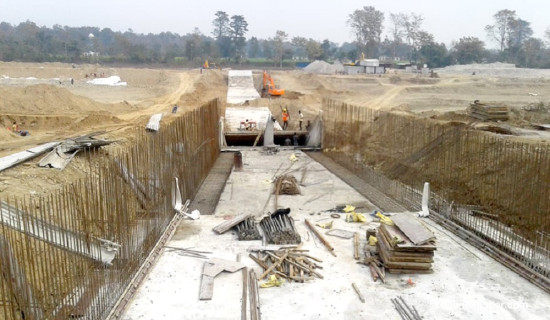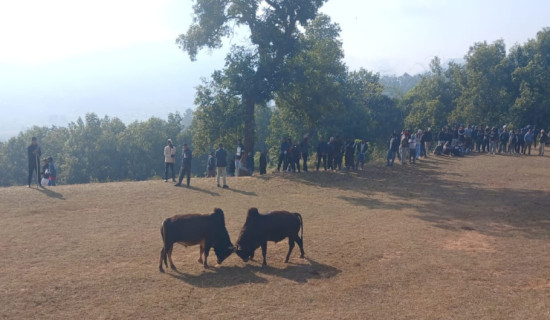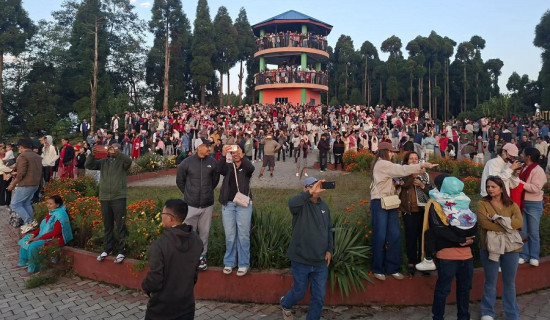- Thursday, 1 January 2026
Citizens Need Democratic Competence
More than a billion registered voters across the countries of Asia-Pacific region in particular have gone to the polls in a slew of elections held this year. To begin, Bangladesh conducted polls on Jan 7 right after the beginning of the New Year 2024 under an opposition boycott and international pressure on Prime Minister Sheikh Hasina to ensure a free and fair vote. The election was indeed a repeat of the 2014 polls, also alleged as "one-sided” assuring victory to Sheikh Hasina. Likewise, Pakistan held general elections on Feb. 8 this year following a prolonged political instability. The polls indicated that Imran Khan and his Pakistan Tehreek-e-Insaf (PTI) enjoy popularity despite the authority crackdown and confrontation with the powerful military establishment.
Immediately following the election held in Pakistan, more than 200 million people cast ballots in Indonesia's election on Feb. 14, making it the world's largest direct presidential vote. To follow, in April, South Koreans voted in legislative elections that is key to deciding the fate of the administration of President Yoon Suk Yeol. Most important election in the world's most populous nation and largest democracy is held in India whose schedule spreads over several weeks in April and May 2024. Prime Minister Narendra Modi and his Bharatiya Janata Party (BJP) are seeking a third straight five-year term in power.
Democratic exercises
India has a staggering 950 million registered voters. In an effort to mount a stronger challenge against the BJP, over two dozen opposition parties formed an alliance called INDIA -- short for the Indian National Developmental Inclusive Alliance. The group includes the main opposition party, the Indian National Congress, which hopes to return to its heyday as the country's dominant party. Likewise another South Asian country Sri Lanka is expected to host polls to elect its next president and parliament before September. Sri Lanka is still struggling to escape the worst economic crisis in its history.
The 2024 U.S. presidential election set for November is going to be different from usual in that both candidates -- presuming they are incumbent President Joe Biden and former President Donald Trump -- have experience running the country. Instead, the election is more likely to focus on each side's rejection of the other's worldview. Trump supporters feel that another Biden term will allow liberal globalists to destroy the U.S. economy and way of life. Biden supporters fret that another Trump term will destroy the country's democracy and liber order. These type of electoral exercises periodically conducted, as mentioned above, in a democracy are predicated upon the premise that those governed should be allowed to have their say and participation in choosing their representatives to govern.
Moreover, such democratic exercises are important to make the relationship between state and citizens further legitimised, consolidated and strengthened. It also offers structures and spaces of interfaces between ordinary citizens and the state authorities. But it is found in most of the countries mentioned above that the interface between citizen and state authorities has not been adequately fostered despite electoral exercise conducted every five year. Most worrying part is that the state authorities including the elected representatives spare little time to communicate and dialogue with citizen stakeholders and give a hearing to their interests, concerns and grievances. The governing mechanism and process is skewed against the interests and aspirations of citizens. The crass interests and whims of politicians and bureaucrats do prevail and dominate at all levels.
The policy legislation process is bureaucratic and top down, so the apex organs of the government such as executive and legislatures rarely do consult with sub national governments while formulating policies. The subnational government stakeholders do complain time and again that the central government has bypassed and encroached upon their jurisdictions. Holding consultation with citizen stakeholders and soliciting views of civic forums and groups on the issues of general interests is rarely carried out. As a result, civic aspirations have been neglected while taking administrative decision and enacting laws in the parliament.
Asymmetries of information
The salient weaknesses in our political and administrative system are that the public officials and authorities hold and control the public information in a very opaque way. Nobel Laureate Joseph Stiglitz describes it as the entrenched asymmetry of information. He explains its consequence not only in economy but in political realm as well. Just as asymmetries give managers the discretion to pursue policies that are more in their interests than in the interests of the share holders. The asymmetries of information allow the state officials to pursue the willful and indiscriminate discretion to implement policies that are more in their interests than in the interests of the citizens.
Access of citizens to information is required for meaningful participation in decision making especially in producing public goods and services. So, the citizens should be endowed with democratic competence to engage with the state institutions to seek accountability and claim effective and efficient services from public service providers. Like many other democratic countries stated above where periodic elections are conducted, Nepal enjoys an enabling legal framework for free and fair elections. The institutional and legal infrastructures like right to information act, local government operation act, good governance act, and national information commission, among others, are in place.
However, their implementation is weak and poor. As a result, public organisations and agencies fail to deliver services to the people. Moreover, they are not subjected to civic scrutiny, sanction and discipline for their non-performance. The informed discussions on the policies being pursued and projects being implemented are hardly the case. The absence of the informed democratic dialogue, deliberation and inputs has created the agency problems. It shows that periodic elections alone are not sufficient for the effective working of democracy.
(The author is presently associated with Policy Research Institute (PRI) as a senior research fellow. rijalmukti@gmail.com)
















